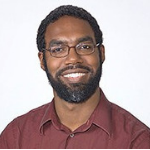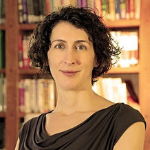Keynotes & Panels
Online Social and Information Behaviors During Crisis Events
Chair: Katrin Weller Watch Recording
Social media have become an established feature of the dynamic information space that emerges during crisis events. Both emergency responders and the public use these platforms to search for, disseminate, challenge, and make sense of information during crises. In this talk, I will review the social processes that unfold in communities during disaster events and how these processes can be studied at scale with behavioral trace data. I illustrate this approach in studies of rumoring behavior and mass convergence of attention. Understanding these processes has important practical implications for effectively leveraging social media for emergency management, as well as theoretical contributions to our understanding of misinformation online.
The Social Scientific Analysis of Textual Data and What Computer Science Won’t Teach You
Chair: Ulrik Brandes Watch Recording
Natural language processing and text mining have long existed for getting structured information from unstructured texts, with origins in computer science and computational linguistics. More recent has been the rapid spread of text analysis in the social sciences, which aims to turn the rich information from texts into data that can be used for description, measurement, and theory testing. Especially in political science and psychology, but present in many other fields such as finance, marketing research, and sociology, text analytic methods have provided new methods for unlocking secrets of the social, economic, and political worlds, accompanied in many instances by new methodologies and applications. In this talk I trace this development and highlight important differences with approaches from computer science, making the case for a social scientific perspective for analysing text as data.
Wandering in the post-API desert: Hey, is that an oasis?
Chair: Milan Babic Watch Recording
The rapid advance of the post-API age has left many computational researchers scrambling for new data sources. Most major universities subscribe to databases that offer millions of news articles from thousands of sources, but the data are often only made available in inaccessible formats. My talk will introduce two new open-source Python modules—NewsExtractor and PyLimn—intended to facilitate access to and analysis of news content from proprietary databases. Topics addressed will include merging content from different databases, deduplication, and new approaches to stemming, named entity extraction, and the extraction of contextual n-grams.
Social Science & Protecting Elections on Facebook
Chair: Diliara Valeeva
Facebook mobilized a massive cross-company effort to protect its platforms from abuse during the 2018 US midterm elections. In this talk, Facebook will provide a behind-the-scenes look at the multi-methods research that informed these efforts. They will also outline some of the tough challenges and open research questions that remain as they take on increasingly sophisticated adversaries and try to scale these civic integrity measures to elections around the world.
Mixing patterns in social interactions
Chair: Sandra González-Bailón Watch Recording
Assortative mixing in networks is the tendency for nodes with the same attributes, or metadata, to link to each other. It is a property often found in social networks manifesting as a higher tendency of links occurring between people with the same age, race, or political belief. In this talk, I will discuss some of the issues with quantifying assortativity and present our recent methods for comparing the level of assortativity both across different scales within a single network as well as across different networks in a population.
Democratising Online Controlled Experiments at Booking.com
Chair: Rense Corten Watch Recording
At Booking.com we have been conducting evidenced based product development using online experiments for almost fifteen years. Our methods and infrastructure were designed to reflect Booking.com culture, that is, with democratisation and decentralisation of experimentation and decision making in mind. In this presentation we explain how our approach has allowed us to truly and successfully democratize experimentation, and let customers shape our product.
The Visibility of Minorities in Social Networks
Chair: Milena Tsvetkova Watch Recording
Networks are the infrastructure of our social and professional life and also of modern information systems where billions of documents and people are interlinked. However, not all nodes are equal in these networks. Often we observe attributes (e.g. gender, ethnicity or political leaning) that define the group membership of a node and impact the edge formation process. In this talk I will present a case study on how minorities are depicted in Wikipedia. I will discuss how homophily and groups size differences impact the visibility of minorities in rankings and to what extent perception biases of humans are explained by the structure of social networks.
Institutions and the structure of collective intelligence
Chair: Kayla de la Haye Watch Recording
Collective intelligence can be superadditive or emergent. The former occurs when a group of people demonstrates an ability, capacity, or accuracy that surpasses its best (or average member). Type of collective intelligence involves combining, interrogating, and refining individual skills and information. Examples include the wisdom of crowds phenomenon in which the average prediction from a group of forecasters is more accurate than any individual, diversity trumps ability results in which teams of diverse problem solvers find better solutions than any individual problem solver, and crowdsourcing innovations which tap into large populations. Collective intelligence of the second type, emergent collective intelligence arises when the collective exhibits functionalities not present in the repertoires of its members. Emergent collective intelligence arises when a crew guides a ship into port, a surgical team performs an operation, a soccer team executes an elaborate offense, or when the members of a jazz quartet respond and adjust to one another to produce a produces a collective sound. (See full abstract in conference app.)
What can small, biased crowds tell us about societal trends?
Chair: Javier Garcia-Bernardo Watch Recording
Societal trends can be difficult to predict. A case in point are elections, where pollsters typically ask people about their own voting intentions, and sometimes also to forecast election results. Recent examples have shown that these questions do not always predict the election winner, even when results are adjusted using expert judgment and models. In this talk I will present results from several recent elections suggesting that polls asking people about voting intentions of their family and friends can produce better election forecasts. These social circle questions also help predict individuals’ voting behavior and their forecasting accuracy. Similar questions improve predictions of vaccination behavior, suggesting that the local wisdom of small and biased crowds can help improve predictions of societal trends.
Responsible Social Computing: Validating Network Data and Theory
Chair: David Schoch Watch Recording
Working with reliable data, metrics, methods, and theories is essential for advancing computational social science and better understanding society. I present on our research on the following question: 1) How do limitations with the provenance and quality of digital data impact research results and theorizing about social behavior and interactions? 2) How can we combine methods from natural language processing and network analysis to advance our knowledge about communication-based networks? 3) How can we assess the impact of information and science on people and society? The work presented in this talk contributes to making sense of qualitative, distributed, and multi-modal data in a scalable way; and advancing the transparency, responsibility, and ethics of computing and technology.
How Humans Judge Machines
Chair: Vincent Traag Watch Recording
In recent years advances in big data and algorithms have given rise to a world in which it is finally possible to include algorithmic decision making in the decision pipelines of governments and businesses. But how will people react to the inclusion of A.I. in organizations? In this presentation I will discuss dozens of experiments documenting differences on how people judge human and A.I. actions.
Special Panel Session: Five Years of IC2S2 & The Future of Computational Social Science (Friday, 14:10 - 15:10 in A0.01)
Chair: Eelke Heemskerk Watch Livestream
After an opening talk by Duncan Watts, several renowned computational social scientists from the field will engage in a panel discussion on the future of the field of computational social science.
Panel: Using Social and Behavioral Sciences to Advance Intelligence Analysis (Thursday, 16:30 – 18:00 in A2.07)
Sujeeta Bhatt, National Academies of Sciences, Engineering, and Medicine, United States
Kathleen Carley, Carnegie Mellon University, United States
Noshir Contractor, Northwestern University, United States
Duncan Watts, Microsoft Research, United States
Panel: Social Data, Independent Research, & Privacy Protection: Facebook & Social Science One (Saturday, 10:50 – 12:20 in A2.07)
Solomon Messing, Rebekah K. Tromble, Arjun Wilkins
Private entities now house untold riches for computational social science–from training sets for machine learning to behavioral data describing social structure and online activity. However getting these data to academic researchers in a way that protects their independence while complying with the law has been a historical challenge. This session describes a joint effort between Social Science One, Social Science Research Council (SSRC), and Facebook to solve the governance and technical issues that surround the use of privately held data for independent research. We will start by discussing the three core challenges of the project: protecting user privacy while simultaneously ensuring meaningful social scientific results and the independence of academic researchers. We will then describe the data sets and access platforms that the Facebook team has put in place over the last year, and if time allows provide a brief demo. We will conclude with a Q & A.















